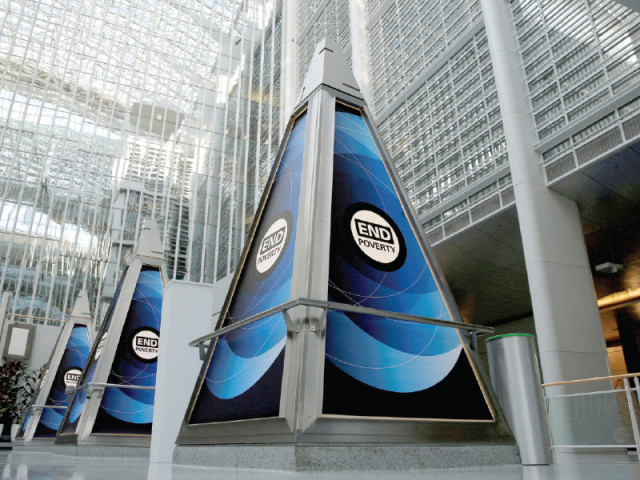Banks issue reports on emergency capital
Part of major push to expand resources available to help poor countries fight climate change

The Inter-American Development Bank and World Bank on Friday issued separate reports on callable capital, the emergency capital pledged by governments but not paid in, that could help multilateral development banks expand their lending capacity.
The reports followed months of technical studies and reverse stress tests that showed shareholders viewed their commitments to provide the emergency capital as legally binding, but saw a remote chance it would ever be needed.
The IDB bank said it conducted reverse stress tests that showed all its shareholders considered obligations for callable capital legally binding, but a call on the emergency capital remained a “highly remote scenario.” The World Bank said its analysis showed the likelihood of a call was “extremely remote.”
IDB said its senior management was confident that credit rating agencies would find the analysis useful in assessing the value of callable capital. The study is part of a major push by the IDB and other multilateral banks to expand the resources available to help poor countries fight climate change.
The World Bank said its review of the procedures and governance of callable capital had provided more clarity and transparency about shareholders’ commitments, and could pave the way for changes to allow more lending.
“This information will help rating agencies to better assess the value of callable capital to Multilateral Development Banks (MDBs),” it said. “Additional recognition by rating agencies of the value of callable capital could potentially allow the World Bank and other MDBs to expand financial capacity to tackle growing development needs and improve the lives of millions.”
Similar reports on callable capital are being published by the African Development Bank, the Asian Development Bank (ADB) and the European Bank for Reconstruction and Development.
A senior US Treasury official said the reports marked progress after months of hard work, with attention to turn now to increased engagement with the credit ratings agencies.
“These statements should really give confidence that there’s potential scope to give more value to callable capital,” the official told Reuters. “This was meticulous, detailed work on the part of the MDBs and the shareholders were really happy.”
US Treasury Secretary Janet Yellen has asked the MDBs to prioritise incorporating “a prudent share” of callable capital into their capital adequacy frameworks, as part of broader reforms aimed at expanding funding options to help developing countries amid a worsening climate crisis.
Senior executives at multilateral development banks (MDBs) have been meeting with top credit ratings agencies amid a broad push to expand their lending capacity and help countries brace for climate change and other challenges.
Several studies say the World Bank and other MDBs could expand their lending capacity by hundreds of billions of dollars if the ratings agencies modified the allowance they make for callable capital, without jeopardising their AAA credit ratings, which enable them to borrow at low rates and pass on the savings to developing countries.
World Bank reforms to expand lending capacity
Additionally, World Bank President Ajay Banga said on Friday he plans to highlight a range of process improvements next week to speed up the development lender’s loan approvals, improve the accountability of its 16,000 employees and attract private capital to projects.
Banga told reporters ahead of the World Bank and International Monetary Fund spring meetings that the development lender had reduced its average 19-month project approval time by about three months and would cut it by another three months by the middle of next year.
Banga, a former MasterCard CEO who took over the helm of the World Bank last June, is guiding the lender’s expansion of its traditional development and anti-poverty mission to include fighting climate change and other global crises. This requires far greater resources and a major expansion of its lending capacity, which was $128.3 billion in the fiscal year ended June 30, 2023.
The World Bank adjusted its loan-to-equity ratio to unlock another $40 billion of lending capacity over 10 years, but this falls far short of the trillions of dollars needed annually to finance the global energy transition and climate mitigation.
Published in The Express Tribune, April 14th, 2024.
Like Business on Facebook, follow @TribuneBiz on Twitter to stay informed and join in the conversation.



















COMMENTS
Comments are moderated and generally will be posted if they are on-topic and not abusive.
For more information, please see our Comments FAQ